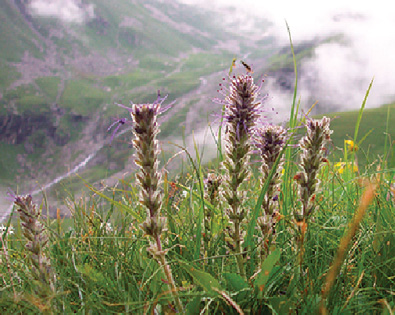
Katuka is a hardy perennial that grows at high altitudes in the Himalayas, usually 2500–3600m. Katuka literally means ‘pungent’. It is has a very bitter root that has wonderful anti-inflammatory and antibacterial properties.
Benefits of Katuka: Useful in skin diseases, liver damage, strengthens liver, purifies blood, cirrhosis and inflammation of the liver, heart disease, allergies, asthma, rhinitis, eczema, arthritis, psoriasis, dysentery, bloating.
Action: Hepatoprotective, cholagogue, laxative and cathartic, bittertonic, anti-inflammatory, antiallergenic, immunostimulator, anthelmintic, expectorant.
Scientific name: Picrorhiza kurroa.
Useful part: Root.
Dosage: 500mg–2g per day.
Energetics
Rasa (taste): Bitter, pungent
Vırya(energy): Cooling
Vipaka (post-digestive effect): Pungent
Guna (quality): Dry, light
Dosa effect: KP−, V+
Dhatu(tissue): Plasma, blood, fat,nerve, reproductive
Srotas (channel): Circulatory, eliminative, reproductive, digestive, respiratory, nervous
Classical and common names
Ayurvedic: Katukaa, Katurohini, Kattarohini, Katuki, Katukikaa, Krishnabhedaa, Kaandaruhaa, Matsyashakalaa, Chakraangi, Shatparvaa, Arishta, Ashokarohinya, Shakuldaani.
English: Picrorhiza.